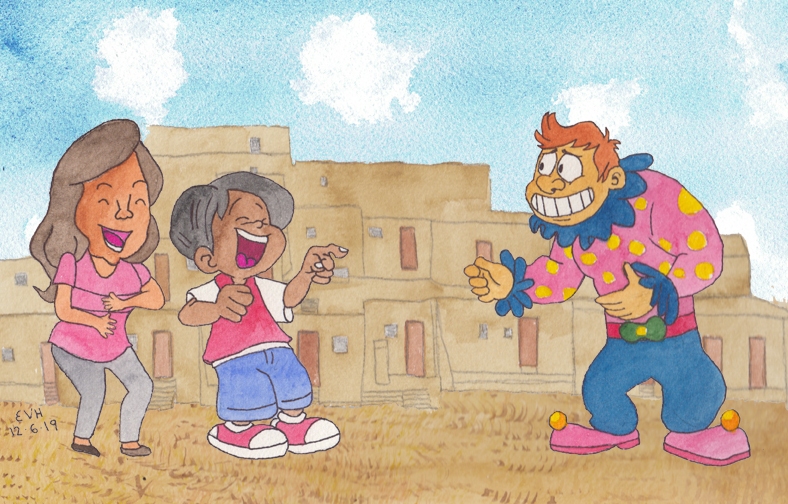
Jataka 191
Ruhaka Jātaka
The Story of Ruhaka
as told by Eric Van Horn
originally translated by William Henry Denham Rouse, Cambridge University
originally edited by Professor Edward Byles Cowell, Cambridge University
I know a Buddhist monk who talks a lot about peoples’ romantic relationships. He tells one particularly inspiring story of a wife who was being physically abused. But by her patience and care, she was able to transform her violent husband into a kind and gentle man.
But those kinds of stories can also be dangerous and have to be regarded with care. You have to know when discretion is the better part of valor. In this Jātaka a brahmin priest is embarrassed by his wife. And while the King urges him to forgive her, he decides that he has had enough.
“Even a broken bowstring.” The Master told this story while he was at Jetavana. It is about temptation arising from a former wife. The circumstances will be explained in [Jātaka 423], in the Indriya Jātaka. Then the Master said to this monk, “That is a woman who does you harm. In former times, too, she caused you to be embarrassed before the King and his whole court, and she gave you good reason to leave your home.” And then he told this story from the past.
Once upon a time, when King Brahmadatta was reigning in Benares, the Bodhisatta was born to his chief Queen. He came of age, and his father passed away. Then he became King, and he ruled righteously.
The Bodhisatta had a chaplain named Ruhaka, and this Ruhaka had an old brahmin woman as his wife.
The King gave the brahmin a horse decorated with all its trappings. As he rode along on the back of his richly adorned steed, the people on this side and that were loud in its praise. “See that fine horse!” they cried. “What a beauty!”
When he got home, he went into his mansion and told his wife what had happened.
“Good wife,” he said, “Our horse is well received! Right and left the people are all speaking in praise of it.”
Now his wife was very deceitful. She said to him, “Ah, husband, you do not know where the beauty of this horse truly is. It is all in his fine decorations. Now if you want to make yourself fine like the horse, put his decorations on yourself and go down into the street, prancing along like a horse. You will see the King and he will praise you, and all the people will praise you.”
The brahmin was foolish enough to listen to her. He did not see that she was trying to embarrass him. So he believed her and did as she said. Everyone who saw him laughed out loud. “There goes a fine priest!” they all said. And the King shamed him. “Why, my teacher,” he said, “Are you out of your mind? Are you crazy?” When he heard this the brahmin realized that he had humiliated himself and he was ashamed. He was very angry with his wife. He rushed home, saying to himself, “The woman has shamed me before the King and his entire retinue. I will reprimand her and throw her out!”

Figure: How Embarrassing
But the crafty woman found out that he was angry. She snuck out of the house by a side door. She went to the palace where she stayed four or five days. When the King discovered what had happened, he sent for his priest and said to him,
But the crafty woman found out that he was angry. She snuck out of the house by a side door. She went to the palace where she stayed four or five days. When the King discovered what had happened, he sent for his priest and said to him, “My teacher, all fools are full of faults. You ought to forgive this lady.” And to encourage the brahmin to forgive his wife he uttered the first stanza:
“Even a broken bowstring can be mended and made whole.
Forgive your wife, and cherish not this anger in your soul.”
Hearing this, Ruhaka uttered the second stanza:
“While there is bark and workmen too
‘Tis easy to buy bowstrings new.
Another wife I will procure.
I've had enough of her, for sure."
So saying, he sent her away and took another brahmin woman as his wife.
The Master, after finishing this discourse, taught the Four Noble Truths, at the conclusion of which the tempted monk was established in the fruit of the First Path (stream-entry). He then identified the birth: “On that occasion the former wife was the same woman. Ruhaka was the tempted monk, and I was the King of Benares.”
